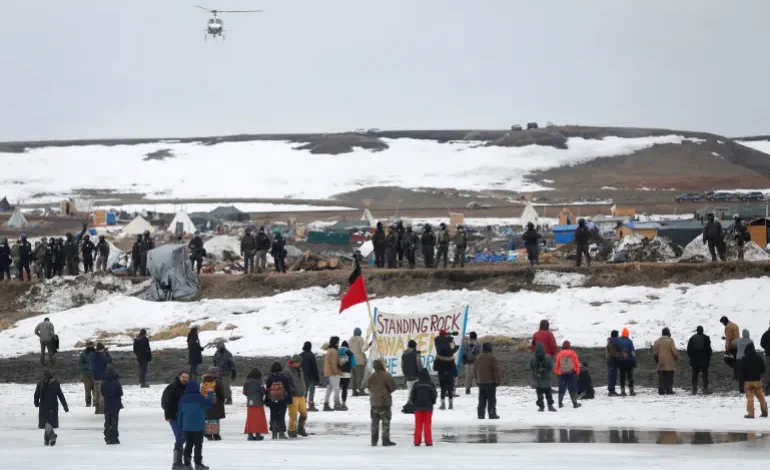Jury Orders Greenpeace to Pay $660 Million in Dakota Access Pipeline Defamation Lawsuit

A US jury has ordered Greenpeace to pay over $660 million in damages to oil pipeline operator Energy Transfer in a defamation lawsuit stemming from protests against the Dakota Access Pipeline nearly a decade ago, Al Jazeera reports.
The verdict has sparked concerns about free speech and the potential for corporations to stifle environmental activism.
The lawsuit, filed by Texas-based Energy Transfer, accused Greenpeace of trespass, nuisance, conspiracy, and deprivation of property access related to its involvement in protests led by the Standing Rock Sioux Tribe in 2016. The protests, one of the largest anti-fossil fuel demonstrations in US history, aimed to halt construction of the Dakota Access Pipeline.
Energy Transfer, a company with a $64 billion valuation, celebrated the verdict.
“We would like to thank the judge and the jury for the incredible amount of time and effort they dedicated to this trial,” the company said in a statement. “While we are pleased that Greenpeace will be held accountable for their actions, this win is really for the people of Mandan and throughout North Dakota who had to live through the daily harassment and disruptions caused by the protesters.”
The nine-person jury in Mandan, North Dakota, reached its decision after two days of deliberation following a trial that began in late February.
However, a group of lawyers monitoring the case, known as the Trial Monitoring Committee, raised concerns about potential bias among the jurors, alleging that many had ties to the fossil fuel industry. “Most jurors in the case have ties to the oil and gas industry and some openly admitted they could not be impartial, although the judge seated them anyway,” the committee stated.
Greenpeace plans to appeal the verdict. Greenpeace International is also pursuing a countersuit against Energy Transfer in the Netherlands, accusing the company of using nuisance lawsuits to suppress dissent. A hearing in that case is scheduled for July 2.
The dispute dates back to April 2016, when the Standing Rock Sioux Tribe established a protest camp along the proposed Dakota Access Pipeline route, calling themselves “water protectors.” The camp drew support from Indigenous communities nationwide and later from other activists, including environmental organizations like Greenpeace and even US Army veterans.
Energy Transfer’s lead lawyer, Trey Cox, argued that Greenpeace “exploited” the Standing Rock Sioux Tribe to advance its anti-fossil fuel agenda. Greenpeace maintains that its role was limited and peaceful, with Native Americans leading the movement.
Despite the protests, the Dakota Access Pipeline, designed to transport fracked crude oil, became operational in 2017. Energy Transfer initially sought $300 million in damages through a federal lawsuit, which was dismissed, before shifting its legal strategy to North Dakota’s state courts, a state lacking protections against “Strategic Lawsuits Against Public Participation” (SLAPP).









The latest news in your social feeds
Subscribe to our social media platforms to stay tuned